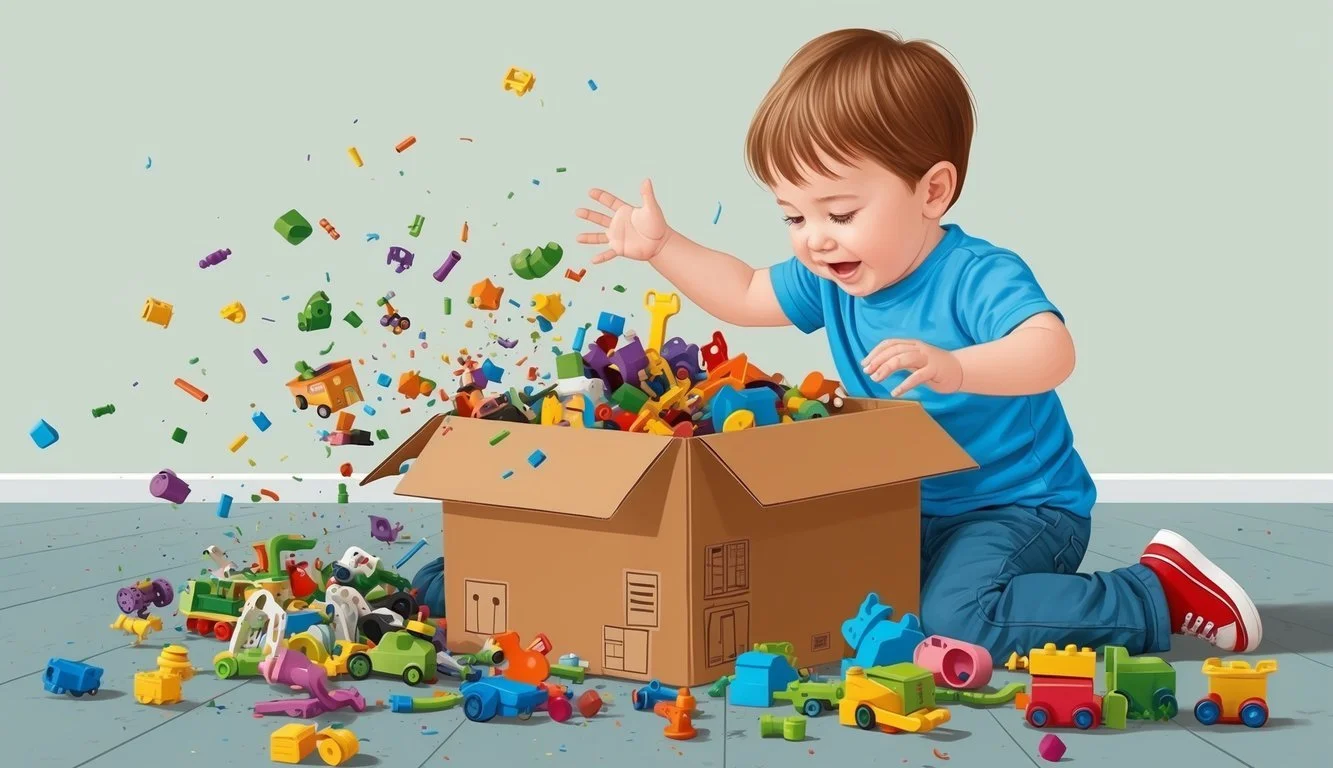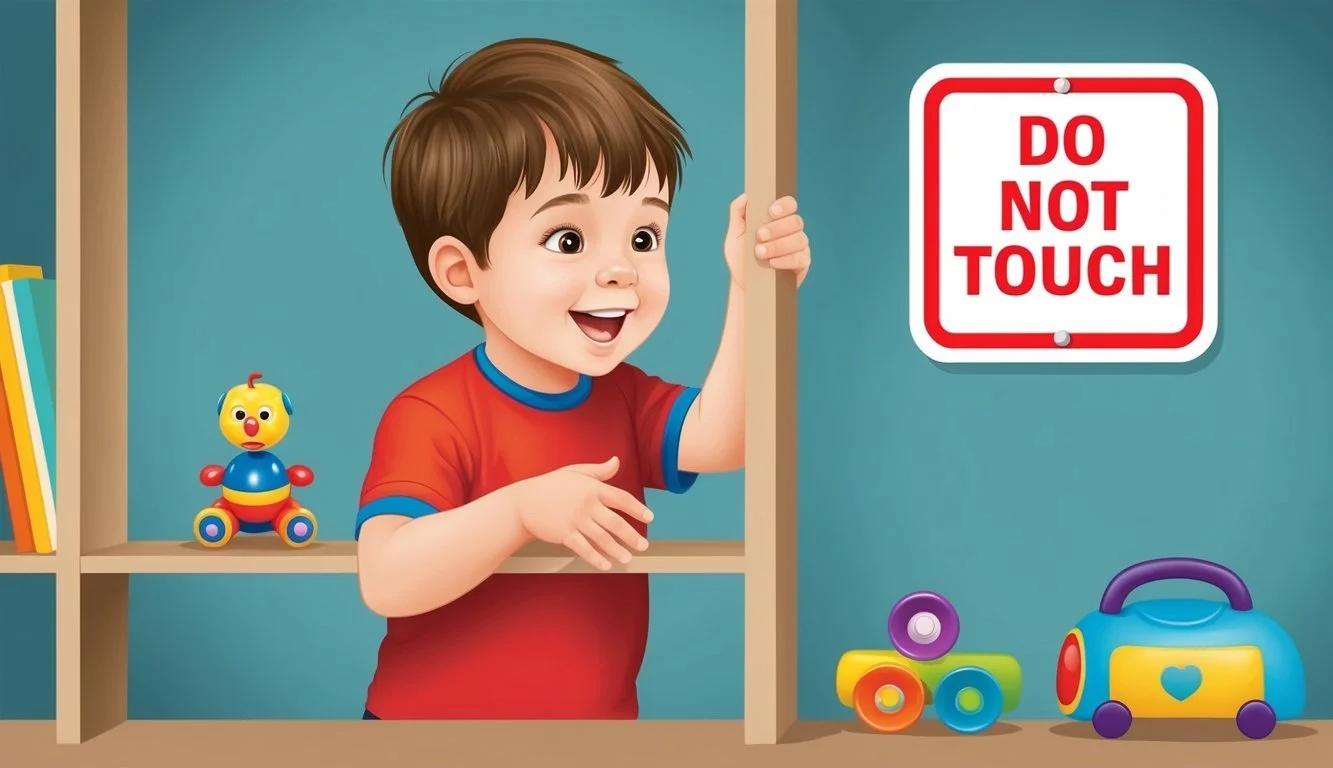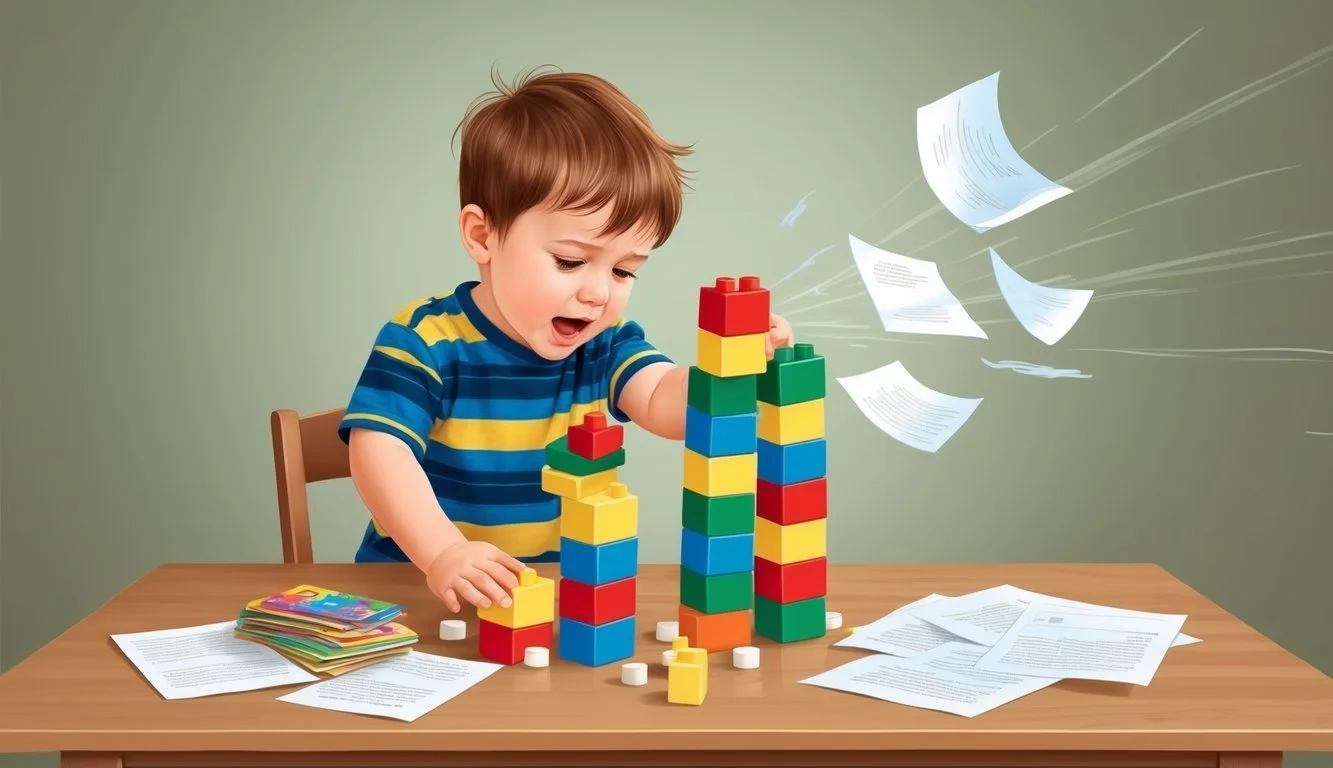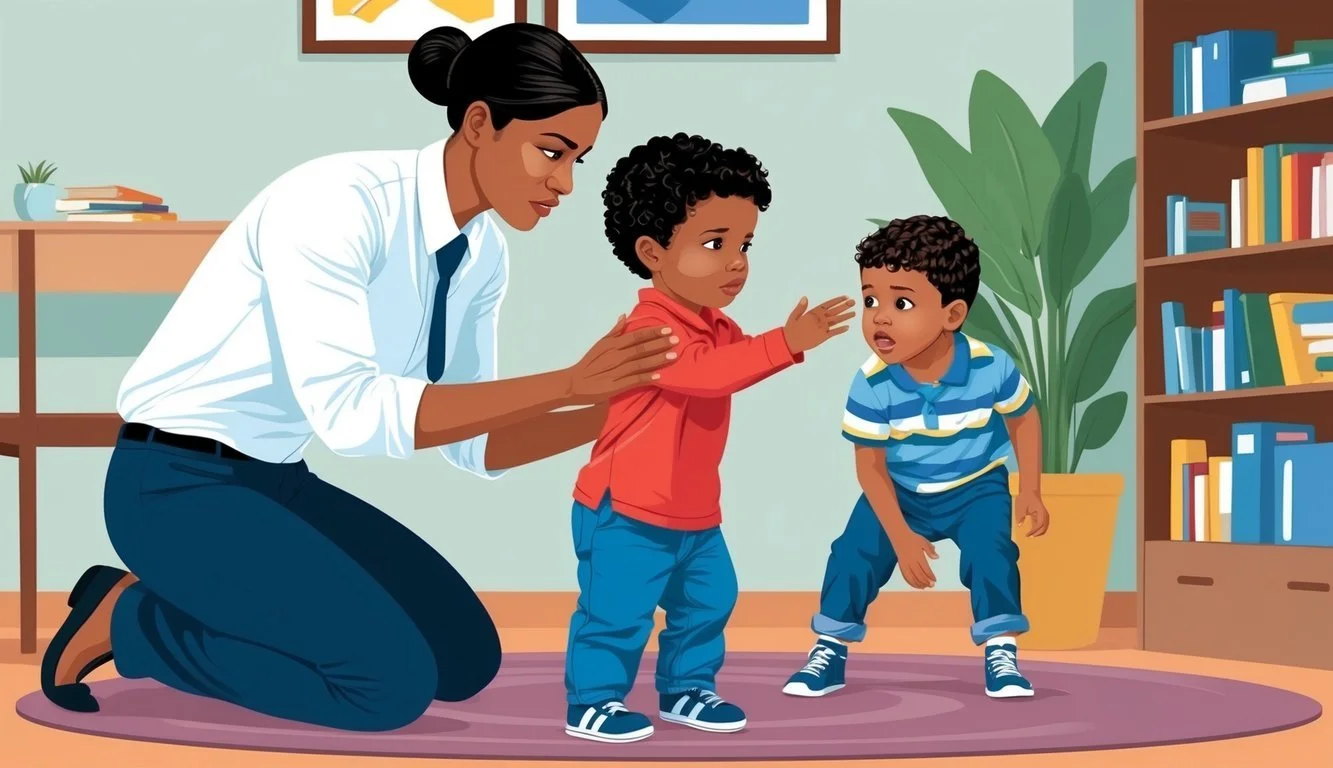Navigating Impulsivity in 4-Year-Olds: Tips for Parents and Caregivers
Impulsivity is a common characteristic of 4-year-olds. At this age, children often struggle with self-control and may exhibit behaviors like running around excessively, interrupting others, or grabbing toys without asking. These actions stem from their developing brains, which have not yet fully matured in areas responsible for impulse control and decision-making.
Parents and caregivers can help manage impulsive behavior in 4-year-olds through various strategies. Establishing clear rules and consistent consequences can provide structure and guidance. Additionally, teaching children to pause and think before acting can gradually improve their impulse control skills.
It's important to remember that impulsivity in 4-year-olds is typically a normal part of development. While some children may require additional support, most will naturally improve their self-control as they grow older. Patience and understanding from adults can make a significant difference in helping young children navigate this stage of development.
Understanding Impulsivity in 4-Year-Olds
Impulsivity is common in 4-year-olds as their brains are still developing. At this age, children often act without thinking about consequences.
Many 4-year-olds struggle with self-control and may have difficulty waiting their turn or sharing toys. This behavior is typically part of normal development at this stage.
By age 4, most children can follow simple rules and show some self-restraint. However, their impulse control is still limited compared to older children or adults.
Factors that can influence impulsivity in 4-year-olds include:
Emotional state
Tiredness
Hunger
Overstimulation
Difficulty communicating needs
It's important to recognize that all children develop at different rates. Some 4-year-olds may display more advanced self-control, while others may need extra support.
Parents and caregivers can help 4-year-olds manage impulsive behavior by:
Setting clear, consistent rules
Providing positive reinforcement
Teaching coping strategies
Modeling self-control
Creating a structured environment
With patience and guidance, most 4-year-olds will gradually improve their impulse control as they grow and mature.
Developmental Factors of Impulsivity
Impulsivity in 4-year-olds stems from ongoing brain development and emerging emotional skills. Key factors include cognitive growth and the ability to regulate emotions.
Cognitive Development
At age 4, children's prefrontal cortex is still maturing. This brain region controls executive functions like impulse control and decision-making. Young children struggle to pause and think before acting.
Their attention span is limited, making it challenging to focus on tasks or follow instructions. Four-year-olds often act on immediate desires without considering consequences.
Language skills are developing rapidly at this age. Limited verbal abilities can lead to frustration and impulsive behavior when children can't express themselves effectively.
Emotional Regulation
Four-year-olds are learning to identify and manage their emotions. They may react impulsively when feeling overwhelmed, excited, or upset.
Self-control is a skill that develops gradually. At this age, children are just beginning to understand the concept of delayed gratification.
Empathy and perspective-taking abilities are emerging. Four-year-olds may act impulsively because they haven't fully grasped how their actions affect others.
Stress and fatigue can significantly impact a child's ability to regulate emotions and behavior. Overtired or overstimulated 4-year-olds are more prone to impulsive outbursts.
Managing Impulsive Behaviors
Addressing impulsive behaviors in 4-year-olds requires consistent strategies and a nurturing environment. Parents and caregivers can implement effective disciplinary techniques while creating supportive surroundings to help children develop self-control.
Effective Disciplinary Strategies
Establish clear rules and consequences for impulsive actions. Communicate expectations in simple terms that young children can understand. Use positive reinforcement to encourage desired behaviors.
When a child acts impulsively, respond calmly and consistently. Redirect their attention to more appropriate activities. Time-outs can be effective for serious infractions, lasting about 4 minutes for a 4-year-old.
Teach problem-solving skills through role-playing scenarios. Help children identify alternative actions they could take in challenging situations. Praise efforts to control impulses, even if not entirely successful.
Creating a Supportive Environment
Structure the child's day with routines to reduce unpredictability. Provide a visual schedule using pictures or symbols to help them understand what comes next.
Minimize triggers for impulsive behavior by childproofing spaces and removing tempting objects. Offer plenty of opportunities for physical activity to release energy in positive ways.
Create a calm-down corner with soft pillows, stuffed animals, and sensory toys. Teach deep breathing or counting exercises to use when feeling overwhelmed.
Model self-control in your own actions. Narrate your thought process when facing challenges, demonstrating how to pause and think before acting.
Role of Parenting Style
Parenting style significantly impacts a 4-year-old's impulsive behaviors. The approach parents take can either exacerbate or help manage their child's impulse control challenges.
Authoritative Approach
Authoritative parenting balances warmth and firm boundaries. This style sets clear expectations while offering emotional support. Parents using this approach explain rules and consequences in age-appropriate ways. They encourage their 4-year-old's autonomy within reasonable limits.
Authoritative parents model self-control and teach problem-solving skills. They praise good behavior and use positive reinforcement. When addressing impulsivity, they remain calm and guide their child through better choices. This approach fosters self-regulation and emotional intelligence in young children.
Consistency and Routine
Consistent parenting provides a stable environment for 4-year-olds to develop impulse control. Parents establish and maintain clear rules and consequences. They respond predictably to both positive and negative behaviors. This helps children understand expectations and feel secure.
Routines play a crucial role in managing impulsivity. Regular schedules for meals, playtime, and bedtime reduce uncertainty and anxiety. Structured activities help children practice following directions and delaying gratification. Parents can use visual schedules or timers to support their child's understanding of time and transitions.
Impact of External Factors
Environmental influences play a significant role in shaping impulsivity in 4-year-olds. These external factors can either exacerbate or mitigate impulsive behaviors.
Influence of Media
Screen time and media content can affect impulsivity levels in young children. Fast-paced shows and video games may contribute to shorter attention spans and increased impulsive reactions. Excessive screen time can also reduce opportunities for developing self-regulation skills through real-world interactions.
Conversely, educational programs that promote patience and problem-solving can help children develop better impulse control. Parents should carefully monitor media consumption and choose content that encourages thoughtful decision-making.
Interactive apps and games designed to improve focus and self-control can be beneficial when used in moderation. These tools often incorporate engaging activities that reward patience and careful consideration.
Peer Interactions
Social environments significantly impact impulsivity in 4-year-olds. Interactions with peers can either reinforce or discourage impulsive behaviors. Children who frequently play with highly impulsive peers may mimic these behaviors, while those in more structured social settings may learn to control their impulses better.
Group activities that require turn-taking and cooperation can help children practice self-regulation. Structured playdates and supervised group activities provide opportunities for adults to guide positive social interactions and model appropriate behavior.
Preschool and daycare environments also play a crucial role. Settings that emphasize clear rules, consistent routines, and positive reinforcement can help children develop better impulse control. Teachers and caregivers who actively promote self-regulation skills can have a lasting impact on a child's behavior.
Promoting Self-Control and Patience
Developing self-control and patience in 4-year-olds requires consistent practice and supportive guidance. Engaging activities and calming techniques can help children learn to manage their impulses more effectively.
Educational Activities
Simple games can teach valuable lessons in self-regulation. Simon Says encourages children to listen carefully and control their actions. Red Light, Green Light helps kids practice stopping and starting on command.
Board games introduce turn-taking skills and waiting patiently. Puzzles foster focus and persistence. Sorting tasks with different objects build concentration and attention to detail.
Reading stories about characters who demonstrate self-control provides positive role models. Discussing the characters' choices reinforces good behavior. Role-playing scenarios allows children to practice making thoughtful decisions in a safe environment.
Mindfulness and Relaxation Techniques
Deep breathing exercises can help children calm down when feeling overwhelmed. Teaching kids to count to five while taking slow breaths gives them a concrete tool to use.
Guided imagery encourages relaxation by having children imagine peaceful scenes. This can be particularly helpful before bedtime or during stressful situations.
Simple yoga poses designed for kids promote body awareness and focus. Stretching exercises combined with breathing can be both fun and calming.
Creating a quiet corner with soft pillows and calming toys provides a space for children to self-soothe. Encouraging regular use of this area helps kids recognize when they need a break.
Professional Interventions
Professional interventions can provide targeted support for 4-year-olds struggling with impulsivity. These approaches utilize evidence-based techniques to help children develop better self-control and emotional regulation skills.
Behavioral Therapy
Behavioral therapy focuses on reinforcing positive behaviors and reducing impulsive actions. Therapists work with children to identify triggers and develop coping strategies. They may use reward systems to encourage desired behaviors and teach self-monitoring techniques.
Cognitive-behavioral therapy (CBT) can be adapted for young children. It helps them understand the connection between thoughts, feelings, and actions. Through age-appropriate activities and games, therapists guide children in recognizing impulsive urges and making better choices.
Play therapy allows 4-year-olds to express themselves in a natural setting. Therapists observe play behaviors and introduce scenarios to practice impulse control. This approach can be particularly effective for children who struggle with verbal expression.
Consulting Pediatric Specialists
Pediatric specialists can assess underlying causes of impulsivity and recommend targeted interventions. Developmental pediatricians evaluate a child's overall growth and may identify delays contributing to impulsive behaviors.
Child psychologists conduct comprehensive evaluations to determine if conditions like ADHD are present. They can recommend specific therapies or behavioral strategies tailored to the child's needs.
Occupational therapists focus on sensory processing and motor skills. They may suggest activities to help children regulate their bodies and manage impulses through physical tasks.
Speech-language pathologists can address communication difficulties that may lead to frustrated, impulsive outbursts. They teach children ways to express needs and emotions more effectively.
Long-Term Outcomes of Early Impulsivity
Early impulsivity in 4-year-olds can have lasting effects on their development. These impacts often manifest in social interactions and academic performance as children grow older.
Social Development
Impulsive behaviors in young children may lead to difficulties forming and maintaining friendships. Children who struggle with impulse control often interrupt others, have trouble taking turns, and react strongly to perceived slights. This can result in peer rejection and social isolation.
As they enter adolescence, these children may face challenges in romantic relationships and group activities. They may struggle to read social cues and respond appropriately in various situations.
Some impulsive children develop coping mechanisms over time, learning to pause before acting. Others may require ongoing support to navigate social complexities successfully.
Academic Performance
Impulsivity can significantly impact a child's academic journey. In the classroom, impulsive 4-year-olds may have trouble sitting still, following instructions, and completing tasks. This can lead to missed learning opportunities and falling behind peers.
As schoolwork becomes more complex, impulsive students may:
Rush through assignments without checking their work
Blurt out answers before questions are finished
Struggle with long-term projects requiring sustained focus
These behaviors can result in lower grades and increased frustration with the learning process. However, with appropriate interventions and support, many impulsive children can develop strategies to succeed academically.
Early identification and targeted interventions are crucial in mitigating the long-term effects of impulsivity on both social and academic outcomes.







